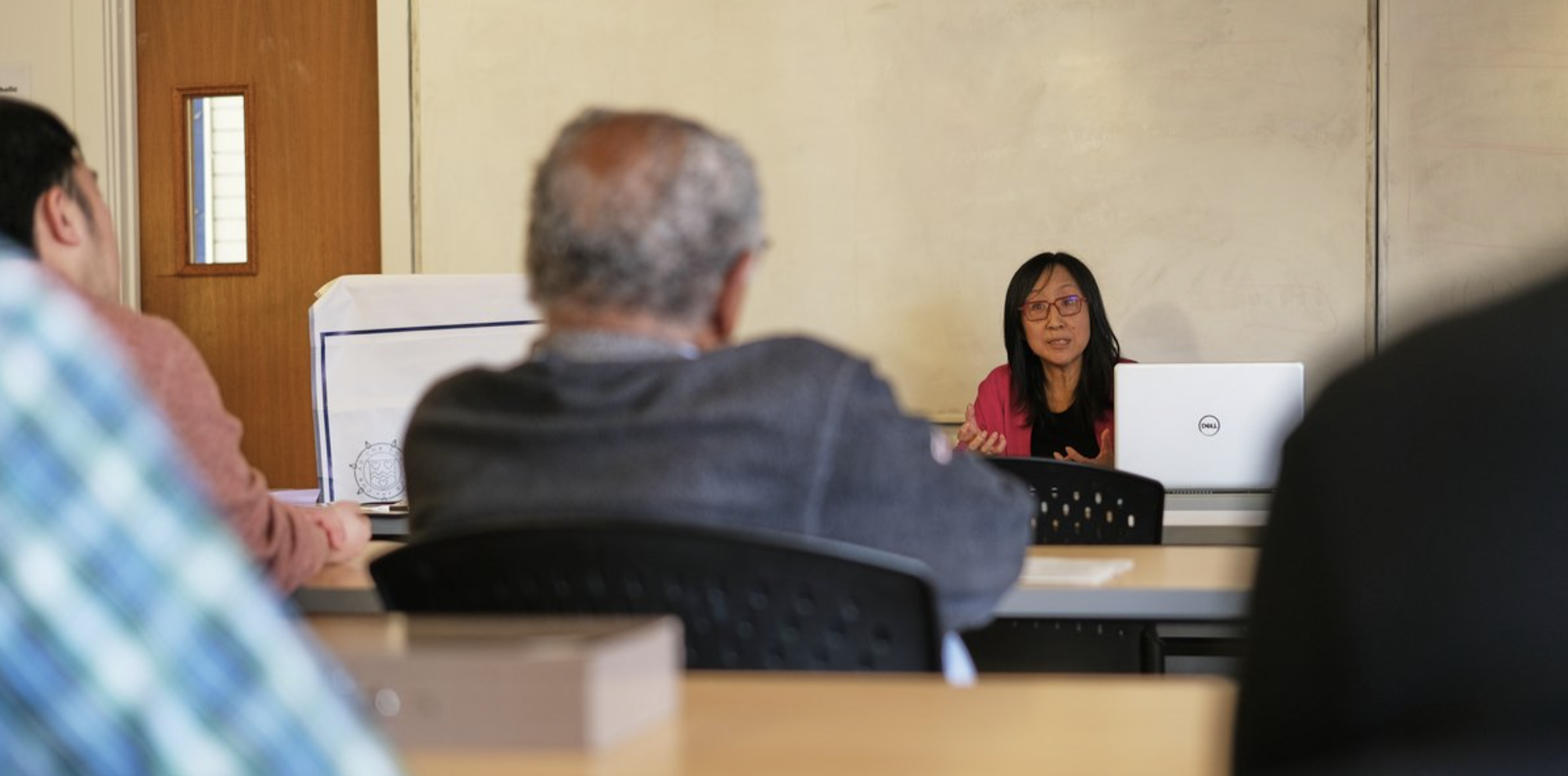VANCOUVER — Among the many surprises of Pope Leo XIV’s election was his early emphasis on the impact artificial intelligence will have on the world—something that has Vancouver bioethicist Dr. Yuriko Ryan excited.
Ryan, who speaks on AI, Catholicism, and faith locally and internationally, is an editor and writer for AI and Faith, an interfaith nonprofit organization based in Seattle.
In an interview with The B.C. Catholic, Ryan said the Pope’s identification of AI with the disruptive changes of the Industrial Revolution is welcome. Those ties are helping Leo XIV build a bridge between himself and his namesake Leo XIII, whose seminal encyclical Rerum Novarum addressed the social issues of the Industrial Revolution and laid the foundation for the next century of Catholic Social Teaching.
“His remarks highlight the profound ethical and social challenges [posed by AI],” Ryan said.
Pope Leo XIV made his first comments about AI just days after his election, stating: “In our own day, the church offers everyone the treasury of its social teaching in response to another industrial revolution and to developments in the field of artificial intelligence that pose new challenges for the defence of human dignity, justice and labour.”
His remarks struck a chord with Ryan. “As a Catholic I get this question a lot from my non-Christian colleges,” she said. “There is a misunderstanding that the Church doesn’t have any relevance in modern life—this is not true.”
Catholic Social Teaching principals “offer wisdom on justice, humanity, and the common good, which are more crucial than ever with regards to AI’s development.”
She sees great potential for the Church. “It’s a great opportunity for people to reflect on the things that are important,” she said. “What we do in 2025 will have significant implications for future generations.”
Ryan is concerned that young people—and perhaps everyone else—are learning to relate to AI while avoiding the mess and value of authentic human relationships. “It feels easier for users to believe that conversing with a machine is drama free,” she said. “But if you don’t have the drama, what’s the point of existing?”
One of the major concerns experts raise about AI is its ability to mimic human behaviour. It’s easy to see why: taken at face value, the sentences generated by ChatGPT, as well as the driving of an autonomous vehicle, can appear to exhibit something like thinking, or intelligence. The easy assumption is that humans and AI belong to the same category of “thinking thing.”
Complicating matters even more, AI scientists and robotics engineers often deliberately obscure efforts to distinguish artificial entities from humans, resulting in robots becoming more lifelike. Ryan pointed to an exhibit at Expo 2025 in Osaka, where a reasonably human-looking robot answered questions from journalists. Meanwhile, chatbots are almost indistinguishable from human operators without careful scrutiny or experience.
On Jan. 28, the Vatican released Antiqua et nova (Ancient and new), a doctrinal note from the Dicastery for the Doctrine of the Faith and the Dicastery for Culture and Education, to clarify some of the confusion. The key message of Antiqua et Nova is simple: AI and humans are not the same.
A deeper reading reveals rich theological and anthropological insight, offering a strong reminder that the Church still has something meaningful to contribute—even in the most complex technological debates.
Ryan addressed the topic at a recent talk titled AI and the Divine Connection sponsored by the UBC Newman Society. She told her audience that the heart of Antiqua et Nova lies in its affirmation that human beings are defined by relationships and their unique capacity to access the True, the Good, and the Beautiful.
Human intelligence, Ryan said, is rooted in several key attributes: rationality, embodiment—possessing both body and soul, and a concrete relationship to Truth which is integrated into the moral and spiritual life.
“Human intelligence cannot be reduced to the mere acquisition of fact, or the performance of skills,” Ryan told her audience.
AI, by contrast, only exists in relation to data, she said. No matter what it seems to be doing, AI can only function as a fancy probability machine. It lacks intuition and can’t look beyond its calculations. Not only does it lack the ability to conceptualize itself with a wider community, but it is hindered by the physical circuitry that gives it form.
There will always be missing data, she said, and a machine will never be capable of making a gut decision or possessing intuition.
Ryan pointed to Cardinal John Henry Newman’s proposal that we are links in a chain, “a bond of connection between persons.” As such, we find our deepest meaning through connection—with each other and with the world.
To elaborate, Ryan quoted the Vatican II document Gaudium et Spes: “By his innermost nature man is a social being; and if he does not enter into relations with other, he can neither live nor develop his gifts.”
Relationships are “transformational,” said Ryan, and “each interaction—even silence—reflects our place in the chain.”
Artificial intelligence, therefore, “must always be subordinate to our relationship with God,” she said. “Innovation should deepen human nature and connection.”




